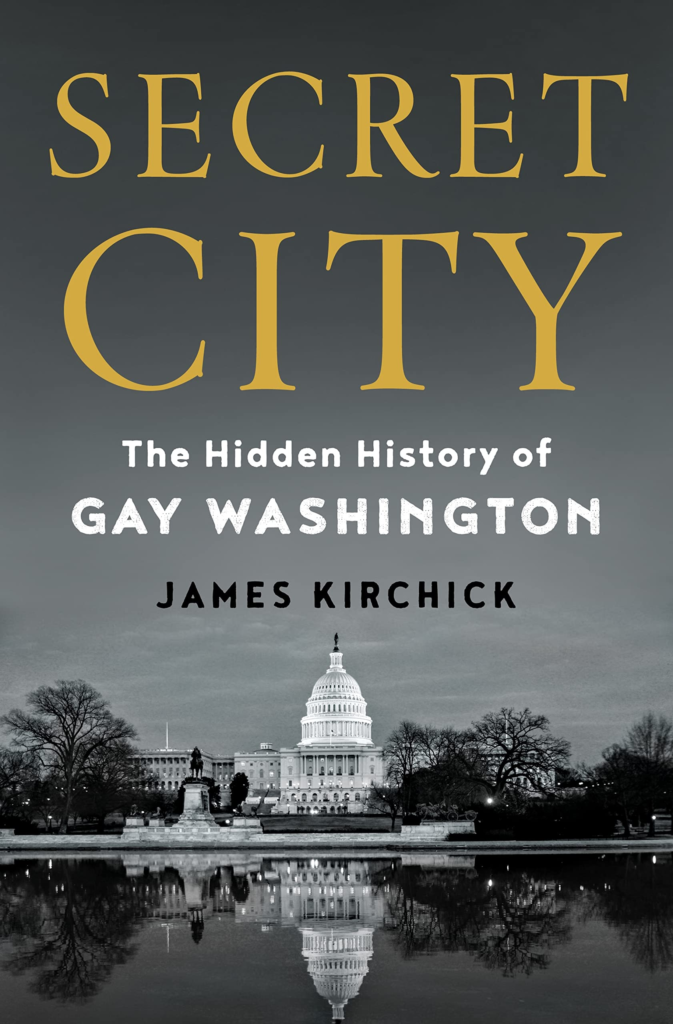Post by Prof. Stephen Horowitz, Legal English Lecturer

On the New York Time Book Review Podcast this week (after a discussion of The Great Stewardess Rebellion) they discussed a book that caught my attention: Secret City: The Hidden History of Gay Washington by James Kirchick.
[Note: Here’s an excerpt from the book recently published in The Atlantic: “Being Gay Was the Gravest Sin in Washington: In the 1960s, the capital was an alluring but dangerous place for people with a secret.”]
The scope of the book turned out to be a little narrower, though no less intriguing, than the title initially indicated. The “Washington” referred to is not about life in general in the Nation’s Capital, but more specifically focuses on the national security policy-making world centered in Washington.
Either way, this seemed like a terrific pre-LLM read to mention to our incoming LLM students–particularly any incoming international students in Georgetown Law’s highly regarded National Security Law LLM program. A wonderful way to build cultural and background knowledge on the history (and vocabulary) of national security politics and policy in Washington while also accounting for and shedding light on an untold and underrepresented historical voice and perspective.
Here’s the NY Times Book Review podcast episode. The discussion of Secret City starts about halfway through the episode:
And here’s a summary of Secret City from Amazon:
For decades, the specter of homosexuality haunted Washington. The mere suggestion that a person might be gay destroyed reputations, ended careers, and ruined lives. At the height of the Cold War, fear of homosexuality became intertwined with the growing threat of international communism, leading to a purge of gay men and lesbians from the federal government. In the fevered atmosphere of political Washington, the secret “too loathsome to mention” held enormous, terrifying power.
Utilizing thousands of pages of declassified documents, interviews with over one hundred people, and material unearthed from presidential libraries and archives around the country, Secret City is a chronicle of American politics like no other. Beginning with the tragic story of Sumner Welles, Franklin Delano Roosevelt’s brilliant diplomatic advisor and the man at the center of “the greatest national scandal since the existence of the United States,” James Kirchick illuminates how homosexuality shaped each successive presidential administration through the end of the twentieth century. Cultural and political anxiety over gay people sparked a decades-long witch hunt, impacting everything from the rivalry between the CIA and the FBI to the ascent of Joseph McCarthy, the struggle for Black civil rights, and the rise of the conservative movement. Among other revelations, Kirchick tells of the World War II–era gay spymaster who pioneered seduction as a tool of American espionage, the devoted aide whom Lyndon Johnson treated as a son yet abandoned once his homosexuality was discovered, and how allegations of a “homosexual ring” controlling Ronald Reagan nearly derailed his 1980 election victory.
Magisterial in scope and intimate in detail, Secret City will forever transform our understanding of American history.
If anyone reads the book (or plans to read the book) and wants to discuss with me, just get in touch!
